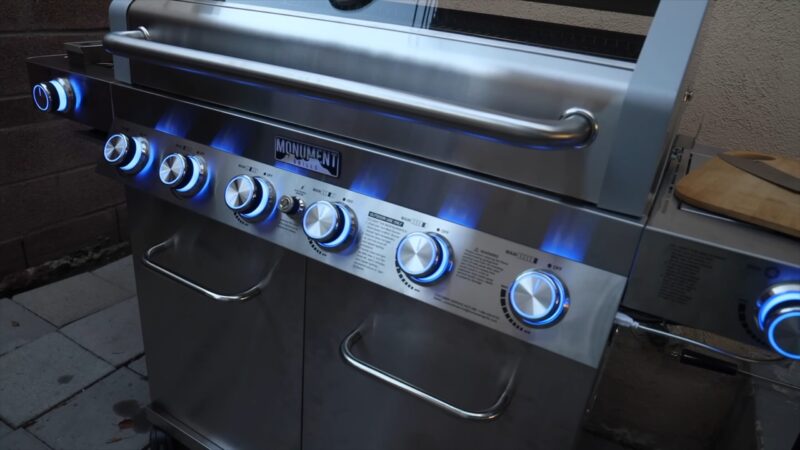When it comes to choosing between a gas smoker and an electric smoker, there are a number of differences to consider. In terms of heat source, gas smokers use natural gas or propane, while electric smokers use electricity to heat a coil or element beneath the wood chips.
Gas smokers are known for their reliability and simplicity, although they can rust if exposed to rain or snow. Electric smokers are easy to use and maintain, but their built-in electronics can be prone to failure. In terms of flavor, gas smokers tend to provide a more intense flavor profile due to the use of charcoal and wood, while electric smokers retain moisture for tender meat but may not achieve a crispy texture or smoke ring. Gas smokers have a wider temperature range and can also be used for grilling, while electric smokers are limited to smoking. Gas smokers are more versatile overall.
Gas smokers are faster when it comes to cooking speed, while electric smokers take longer but provide more flavor. Electric smokers are generally more cost-effective, while gas smokers can be more expensive due to the cost of fuel. In terms of environmental effects, both types of smokers are designed to minimize pollution. Overall, electric smokers are considered a better choice due to their ease of use, cost-effectiveness, and ability to provide enhanced flavor.
Key Takeaways:
- Gas smokers use natural gas or propane, while electric smokers rely on electricity.
- Gas smokers are known for their reliability and simplicity, while electric smokers are easy to use and maintain.
- They provide a more intense flavor profile, while electric smokers retain moisture for tender meat.
- Gas smokers have a wider temperature range and can be used for grilling, while electric smokers are limited to smoking.
- Electric smokers are generally more cost-effective and environmentally friendly.
Heat Source: Gas vs Electric

The first major difference between gas smokers and electric smokers is their heat source. Gas smokers rely on natural gas or propane as their primary fuel source, which provides a consistent and easily adjustable heat level. Natural gas is a popular choice for outdoor cooking due to its convenience and cost-effectiveness. Propane, on the other hand, offers portability and is commonly used for camping or tailgating.
Electric smokers, on the other hand, use electricity to heat a coil or element beneath the wood chips. This method allows for precise temperature control and eliminates the need for an open flame. Electric smokers are also easy to use, as they only require plugging into an electrical outlet. This makes them a popular choice for individuals who prefer a hassle-free smoking experience.
While both gas and electric smokers have their advantages, the choice of heat source ultimately depends on personal preference and specific cooking needs. Gas smokers provide the traditional grilling experience with the use of natural gas or propane, whereas electric smokers offer convenience and precise temperature control with electricity. Whichever option you choose, both types of smokers can deliver delicious results and enhance your outdoor cooking experience.
Reliability and Maintenance
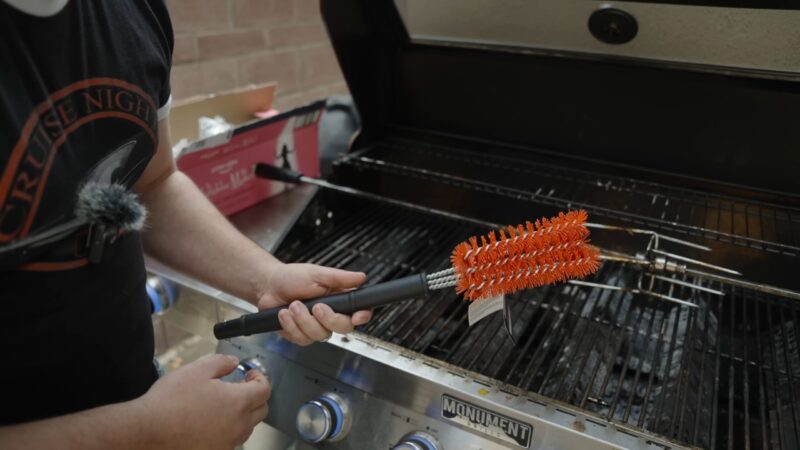
When it comes to reliability and maintenance, gas smokers and electric smokers have different characteristics. Gas smokers are known for their reliability and simplicity, making them a popular choice among barbecue enthusiasts. They have fewer components and are less likely to experience technical failures. However, one thing to keep in mind is that gas smokers can be prone to rust if exposed to rain or snow. To prevent rusting, it is recommended to use a cover or store the smoker in a dry place when not in use.
On the other hand, electric smokers are easy to use and maintain. They do not require the use of gas tanks or charcoal, making them more convenient for those who prefer a hassle-free grilling experience. However, electric smokers do come with built-in electronics that can be prone to failure. It is important to follow the manufacturer’s instructions and take proper care of the electronics to ensure their longevity. Regular cleaning and maintenance will help ensure the smooth operation of the electric smoker.
Table: Comparison of Reliability and Maintenance
| Gas Smokers | Electric Smokers |
|---|---|
| Reliable and simple | Easy to use and maintain |
| Potential for rust if exposed to rain or snow | Built-in electronics may be prone to failure |
| Require regular cleaning and maintenance | Follow manufacturer’s instructions for care |
In summary, gas smokers are known for their reliability and simplicity, but they may rust if not properly protected. Electric smokers, on the other hand, are easy to use and maintain, but their built-in electronics can be more prone to failure. Both types of smokers require regular cleaning and maintenance to ensure optimal performance and longevity.
Flavor Profile: Intensity vs Moisture
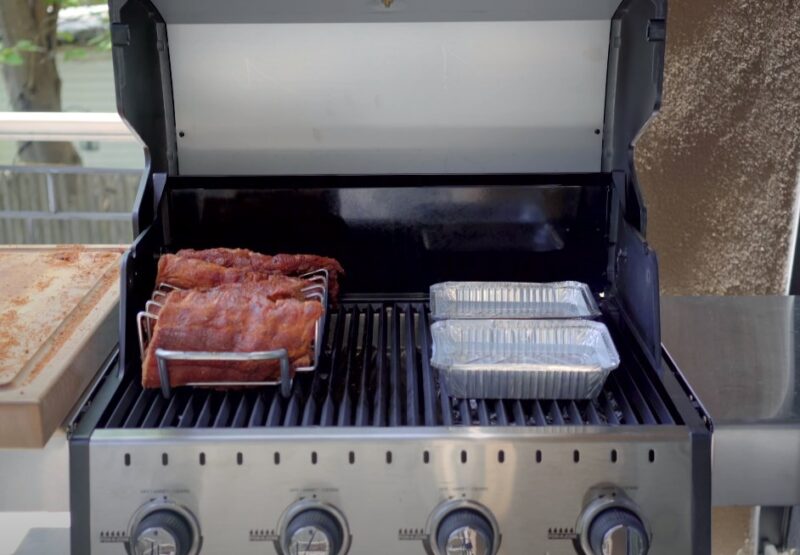
The flavor profiles of gas smokers and electric smokers differ in terms of intensity and moisture. Gas smokers, with their use of charcoal and wood, offer a more intense flavor profile that is desired by many grilling enthusiasts. The combination of these traditional fuels creates a smoky, savory taste that adds depth and complexity to the food being cooked. The flavor imparted by gas smokers is often described as robust and bold, making it a popular choice for those who enjoy a more intense grilling experience.
On the other hand, electric smokers excel in retaining moisture, resulting in tender and juicy meat. The controlled temperature and even heat distribution of electric smokers help to lock in the natural juices of the meat, ensuring a succulent outcome. While the flavor may not be as intense as that of a gas smoker, the moist texture of the food is highly valued by many. Electric smokers are particularly favored for their ability to consistently produce perfectly cooked and flavorful dishes.
It is important to note that electric smokers may not achieve the same level of crispiness or smoke ring formation as gas smokers. The smoke ring, a pinkish hue that forms on the outermost layer of smoked meat, is a sign of proper smoke penetration and enhances both visual appeal and taste. For those seeking a crispy texture or smoke ring, a gas smoker may be the preferred option. However, if tenderness and moisture are the priorities, an electric smoker is the way to go.
| Gas Smoker | Electric Smoker | |
|---|---|---|
| Flavor Profile | Intense with smoky undertones | Moist and tender |
| Texture | Crispy exterior | Tender and juicy |
| Smoke Ring Formation | Prominent | Less pronounced |
In summary, the flavor profile offered by gas smokers is characterized by its intensity and smokiness, while electric smokers excel at maintaining moisture and tenderness. The choice between the two ultimately depends on personal preferences and the desired outcome of the grilling experience. Whether you prioritize intense flavor and a crispy texture or moist, tender meat, both gas and electric smokers have their own unique advantages to offer.
Temperature Range and Versatility
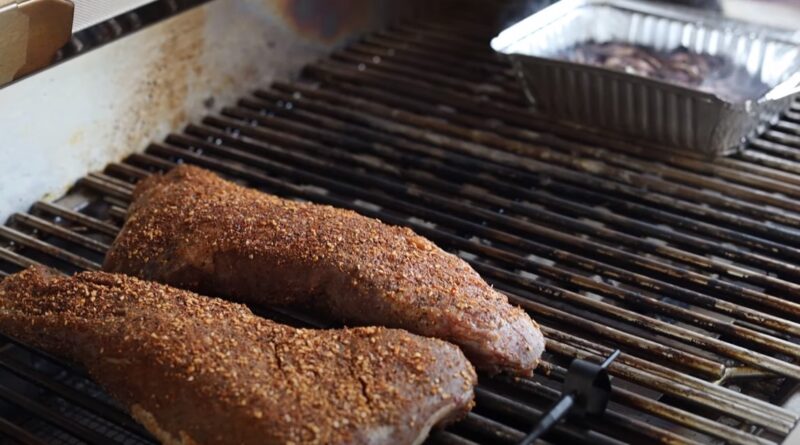
When it comes to temperature range and versatility, gas smokers and electric smokers offer different options. Gas smokers have a wider temperature range, allowing for greater control over cooking temperatures.
This makes them suitable for both low and slow smoking, as well as high-heat grilling. With a gas smoker, you can easily achieve temperatures as low as 180°F for slow smoking, or crank it up to over 500°F for searing steaks or cooking pizzas.
On the other hand, electric smokers are generally limited to smoking and have a narrower temperature range. Most electric smokers can maintain a temperature range between 100°F and 275°F, which is ideal for slow smoking various types of meat.
While electric smokers may not have the same high-temperature capabilities as gas smokers, they excel in providing consistent and precise low-temperature smoking.
If you’re looking for versatility and the ability to grill in addition to smoking, gas smokers are the way to go. You can easily switch from smoking to grilling by adjusting the temperature and using the grates provided.
This allows you to cook a wider variety of foods, from ribs and briskets to burgers and vegetables, all on the same smoker. Electric smokers, on the other hand, are designed primarily for smoking and may not offer the same grilling capabilities.
| Gas Smokers | Electric Smokers |
|---|---|
| Wide temperature range | Narrow temperature range |
| Suitable for smoking and grilling | Primarily for smoking |
| High-heat capabilities for searing | Consistent low-temperature smoking |
In summary, gas smokers provide a wider temperature range and greater versatility, allowing for both smoking and grilling. They offer high-temperature capabilities for searing and can handle a variety of cooking styles.
Electric smokers, on the other hand, are best suited for low and slow smoking, providing consistent and precise temperature control. Consider your cooking preferences and the types of dishes you want to prepare when choosing between a gas smoker and an electric smoker.
Cooking Speed: Fast vs Slow
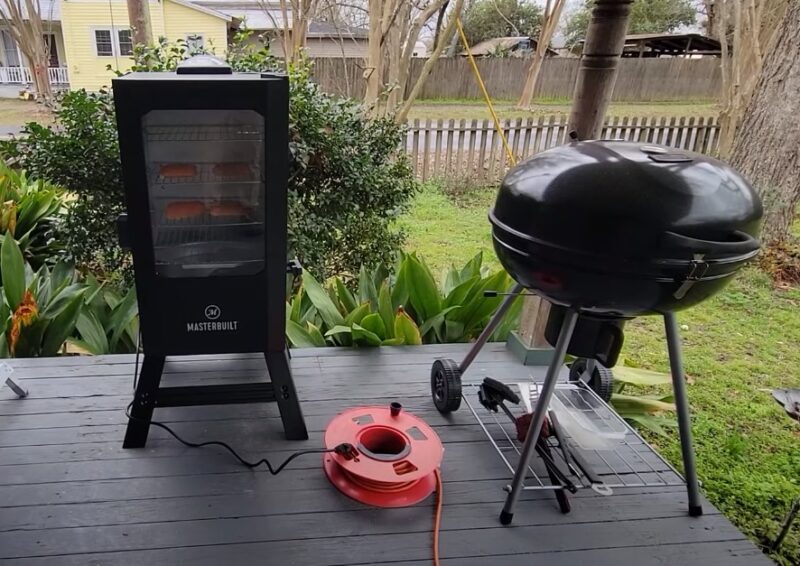
The cooking speed of gas smokers and electric smokers varies significantly. Gas smokers are known for their ability to reach higher temperatures quickly, making them the faster option for cooking. This is particularly advantageous when grilling or smoking larger cuts of meat that require shorter cooking times. Gas smokers provide a more immediate and intense heat source, allowing for faster cooking and quicker meal preparation.
On the other hand, electric smokers take longer to heat up and reach the desired cooking temperature. The heating element in electric smokers operates at a lower intensity, resulting in a slower cooking process. While this may extend the overall cooking time, it can also contribute to a more flavorful end result. The slower cooking process allows for a deeper infusion of smoke flavor, resulting in tender and well-flavored meat.
When it comes to flavor, the cooking speed can have a significant impact. Gas smokers, with their faster cooking time, may not provide the same depth of flavor as electric smokers. The slower cooking process in electric smokers allows the meat to absorb more of the smoky flavor, enhancing the overall taste. This slower cooking process is particularly beneficial for smoking meats such as ribs or brisket, where the goal is to achieve a rich and smoky flavor profile.
| Gas Smokers | Electric Smokers |
|---|---|
| Faster cooking speed | Slower cooking speed |
| Quickly reaches high temperatures | Takes longer to heat up |
| Potential for less intense smoke flavor | Enhanced smoke flavor due to slower cooking process |
In summary, the cooking speed of gas smokers and electric smokers differs significantly. Gas smokers offer a faster cooking experience, reaching high temperatures quickly. This is ideal for those who prefer fast and efficient cooking. On the other hand, electric smokers provide a slower cooking process that results in a deeper infusion of smoky flavor. This is advantageous for those who prioritize flavor over speed. Ultimately, the choice between gas smokers and electric smokers depends on individual preferences and cooking needs.
Cost-Effectiveness: Budget vs Fuel
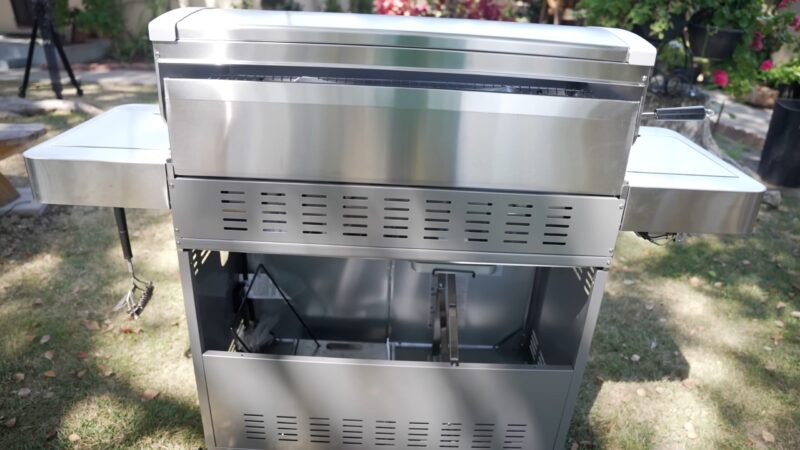
When it comes to cost-effectiveness, gas smokers and electric smokers have different considerations. Gas smokers can be more expensive upfront due to the cost of the smoker itself and the need for natural gas or propane as a fuel source. On the other hand, electric smokers are generally more budget-friendly, as they only require electricity to function. This makes them a more cost-effective option for those looking to save on initial investment.
However, it’s important to note that the ongoing cost of fuel needs to be factored in when considering the cost-effectiveness of gas smokers. Natural gas or propane can be pricey, especially if you grill or smoke frequently. This cost can add up over time and may impact the overall budget. In contrast, electric smokers run solely on electricity, which tends to be more affordable and accessible for most households.
| Cost Factors | Gas Smokers | Electric Smokers |
|---|---|---|
| Initial Investment | Higher | Lower |
| Fuel Cost | Expensive | Affordable |
| Long-Term Expenses | Higher | Lower |
In terms of budget, electric smokers offer a more affordable option in the long run, thanks to their lower fuel costs. However, it’s essential to assess your grilling and smoking needs, as well as your available resources, to determine the most cost-effective choice for you. Consider factors such as frequency of use, availability of natural gas or propane, and electricity costs in your area.
Ultimately, the decision should align with your budget and priorities. If cost-effectiveness is a major consideration, electric smokers may be the more suitable option. They provide a budget-friendly solution without compromising on flavor or convenience, making them an excellent choice for both novice and experienced grillers.
Environmental Effects: Minimizing Pollution
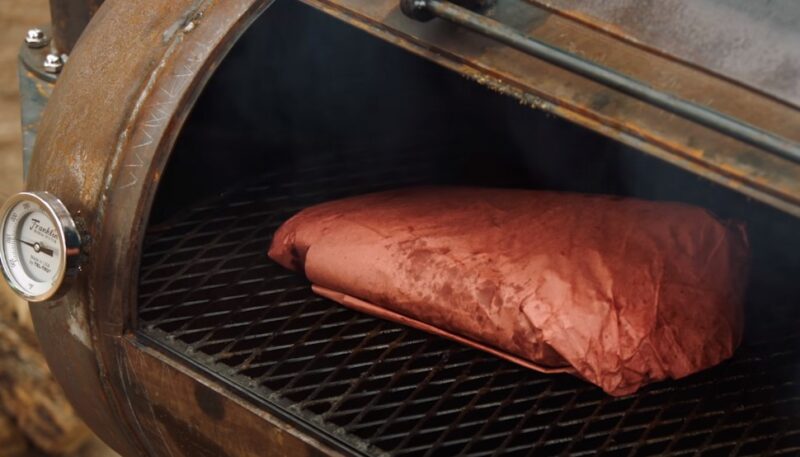
Both gas smokers and electric smokers have environmental considerations in terms of minimizing pollution. While they differ in their heat sources and cooking methods, both types of smokers are designed to reduce their impact on the environment.
Gas smokers, powered by natural gas or propane, produce emissions during the combustion process. However, modern gas smokers are equipped with advanced technologies such as smoke boxes and adjustable vents, which help to minimize pollution. These features ensure that the smoke and gases produced are efficiently burned and released, reducing the amount of harmful emissions.
On the other hand, electric smokers rely on electricity to generate heat and smoke. These smokers do not produce direct emissions during the cooking process. Instead, they use electric heating elements to generate heat, which in turn produces smoke from the smoldering wood chips. As a result, electric smokers are considered more environmentally friendly, as they do not release any gases or pollutants directly into the air.
Overall, both gas smokers and electric smokers prioritize minimizing pollution and strive to provide a cleaner grilling experience. Whether you choose a gas smoker or an electric smoker, rest assured that both options are designed with the environment in mind.
| Environmental Considerations | Gas Smokers | Electric Smokers |
|---|---|---|
| Emissions | Produce emissions during combustion process | No direct emissions during cooking process |
| Advanced Technologies | Equipped with smoke boxes and adjustable vents to reduce pollution | N/A |
| Heat Source | Natural gas or propane | Electricity |
| Smoke Production | Smoke produced from charcoal and wood | Smoke produced from smoldering wood chips |
Ease of Use and Enhanced Flavor
Electric smokers offer several advantages in terms of ease of use and enhanced flavor. With their simple and straightforward design, electric smokers are incredibly user-friendly, making them suitable for beginners and experienced grillers alike. Unlike gas smokers, which require the hassle of connecting to a gas line or replacing propane tanks, electric smokers only need to be plugged into an electrical outlet. This convenience allows you to start smoking your favorite meats and vegetables quickly, without any additional setup or preparation.
In addition to their ease of use, electric smokers are also known for delivering enhanced flavor. By utilizing an electric heating element, these smokers produce a consistent and controlled heat source that ensures your food is cooked evenly and retains its natural moisture. This results in succulent and tender dishes that are packed with flavor. Electric smokers also allow you to experiment with different types of wood chips, such as hickory or mesquite, to further enhance the taste profiles of your dishes.
Furthermore, electric smokers offer the convenience of set-and-forget functionality. Many models come equipped with digital controls and built-in thermometers, allowing you to easily monitor and adjust the cooking temperature without constantly tending to the smoker. This hands-off approach not only saves you time and effort but also ensures consistent results every time you smoke. Whether you’re smoking a brisket, ribs, or even vegetables, an electric smoker provides a hassle-free experience without compromising on flavor.
In conclusion, when it comes to ease of use and enhanced flavor, electric smokers are the clear winner. Their user-friendly design, consistent heat source, and set-and-forget functionality make them a popular choice among grill enthusiasts. Whether you’re a novice or a seasoned pro, an electric smoker provides convenience and delicious flavors that will elevate your grilling experience.
FAQ
What is the difference between a gas smoker and an electric smoker?
Gas smokers use natural gas or propane as a heat source, while electric smokers use electricity to heat a coil or element beneath the wood chips.
Are gas smokers more reliable than electric smokers?
Gas smokers are known for their reliability and simplicity. However, they can rust if exposed to rain or snow. Electric smokers are easy to use and maintain, but their built-in electronics can be prone to failure.
Which type of smoker provides a more intense flavor profile?
Gas smokers tend to provide a more intense flavor profile due to the use of charcoal and wood. Electric smokers retain moisture for tender meat but may not achieve a crispy texture or smoke ring.
Can I use a gas smoker for grilling?
Yes, gas smokers have a wider temperature range and can be used for grilling in addition to smoking. Electric smokers are limited to smoking only. Also, you should consider offset smoker, as well.
Which type of smoker cooks faster?
Gas smokers are faster when it comes to cooking speed. Electric smokers take longer but provide more flavor.
Bottom Line
In conclusion, when deciding between gas and electric smokers, one’s personal grilling preferences take center stage. Gas smokers, which rely on natural gas or propane, often provide a deep, authentic smoky flavor that many barbecue aficionados cherish.
They offer versatility and a wide temperature range, making them suitable for a variety of cooking styles. Conversely, electric smokers, drawing power from electricity, excel in ease of use and consistent temperature control.
They are particularly appreciated for their ability to retain moisture, ensuring tender results. While both types have their merits, the final decision boils down to individual tastes, desired convenience levels, and specific culinary goals.

